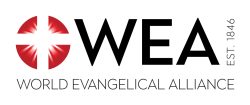vaccine equity
For Christians, the inequity in vaccine availability is a call to confront injustice. Fortunately, there are several opportunities for action.
Responding to Vaccine Inequity: The Love Thy Neighbor Initiative
Pandemics, like all natural disasters, reveal the vulnerability, inequity, and injustice that exists in the world. The current pandemic is no exception as shown most dramatically in the difference in vaccine availability between the West and the Majority World. Just 13% of the wealthiest countries control more than half the worlds supply of vaccine. At the same time, the poorest countries may not be able to roll out vaccine to their citizens until 2022 or even 2023. As of April 14, 2021, such countries as Zimbabwe, Tunisia, and Malawi have vaccinated less than 2% of the population. Similarly, in South America, while a few countries have made progress, others, such as Peru, Guatemala, Honduras, and Venezuela have also vaccinated less than 2% of their population.
This inequity is both an injustice and a threat. Dr. Anthony Fauci, the Director, U.S. National Institute of Allergy and Infectious Diseases, said recently …
“Successful vaccine rollouts in the United States and other wealthy nations have made many people hopeful that the end of the COVID-19 pandemic is in sight. But the majority of the world’s population does not yet have access to these vaccines. Without a strong global effort to immunize everyone, new variants could tighten the pandemic’s grip on rich and poor countries alike.”
Tedros Ghebreyesus, head of the World Health Organization, has warned that this inequality of vaccine distribution could result in a “catastrophic moral failure”.
Hebdavi Muhindo, Tearfund’s Country Director for the Democratic Republic of Congo (DRC), says they are seeing the impact of this inequality:
‘No life should be lost because of the unfair distribution of vaccines. No-one should be left behind because they or their country can’t afford the vaccine. The most vulnerable people are in the countries with broken health systems.”
For Christians, the inequity in vaccine availability is a call to confront injustice. Fortunately, there are several opportunities for action.
One example of a program to bring equity to vaccine access is a program called Love My Neighbor. The program started in Canada and has made great progress in supporting vaccine access for the poorest countries of the world. Variations of this program exist in several countries which calls for people who receive the vaccine to donate money equal to the value of the vaccine they received. All of the donated funds go to UNICEF for the COVAX program to buy vaccine for the majority world.
COVAX is a partnership of WHO, UNICEF and other groups that aims to purchase and distribute Covid vaccine for the majority world. Without Covax it is likely that Western countries will continue to prioritize their own citizens and the majority world will go years without achieving full vaccination.
How a Church or National Alliance Can Help
- Start a Love Thy Neighbor program that asks people to make a donation when they are vaccinated. Love Thy Neighbor programs have started in many countries, and are simple to start. Groups can work with their national UNICEF office to set up a donation system that applies all funds to Covax. There are examples of this program below.
- Educate people about the Covax program and what it is trying to achieve.
- Contact your elected representatives about supporting Covax.
- Contact your national UNICEF office to discuss resources and support.
